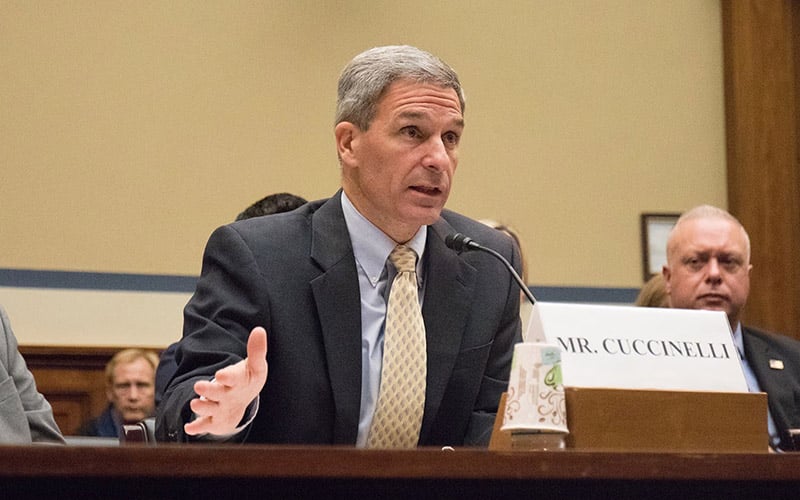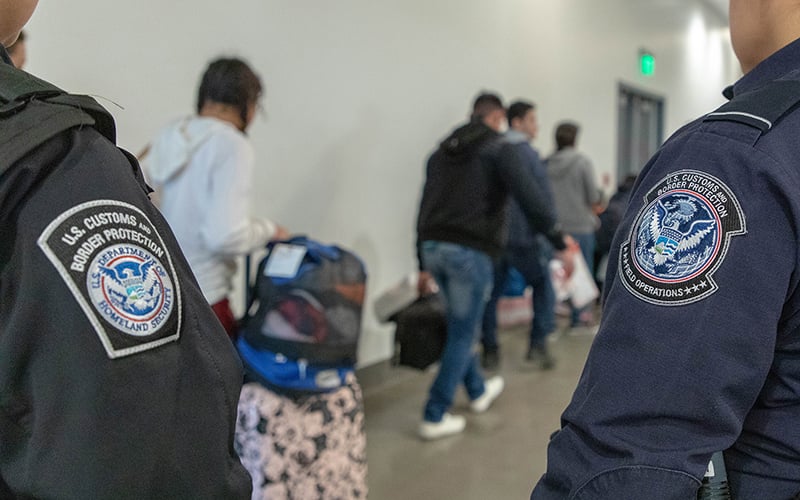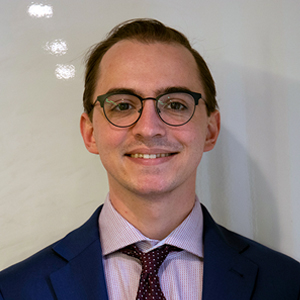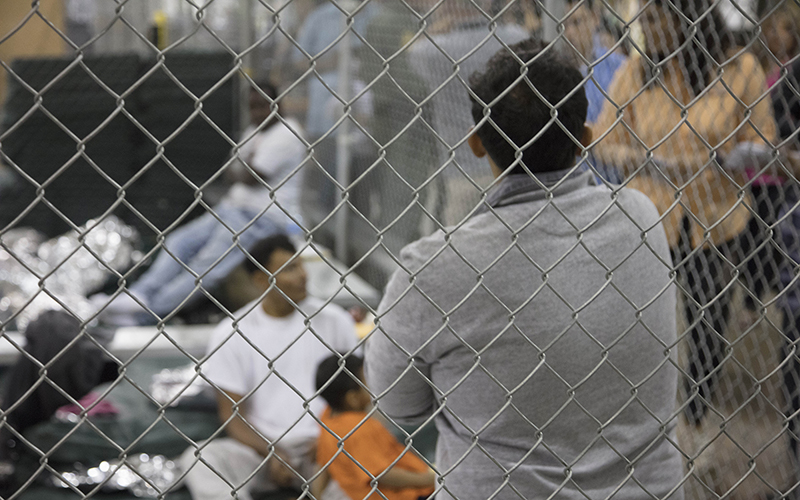
A federal court this month ruled that Acting U.S. Citizenship and Immigration Services Director Ken Cuccinelli was improperly appointed last year, nullifying policies he put into place since then. Cuccinelli has said he will appeal. (Photo by Vandana Ravikumar/Cronkite News)
WASHINGTON – One of the first things Ken Cuccinelli did after being named acting director of U.S. Citizenship and Immigration Services was to issue a directive sharply cutting the amount of time migrants have to make their case for asylum.
One problem – Cuccinelli was not legally the acting director, a court ruled.
That March 1 ruling by a federal district judge in Washington, D.C., nullified Cuccinelli’s orders on asylum cases and is being hailed by immigration advocates and attorneys as a “win for the rule of law.”
“It does give us more time, it does give us a better opportunity to prepare the client,” said Ruben Reyes, an immigration attorney in Phoenix. He said Trump administration policies on asylum seekers and their access to lawyers have been a “huge problem” recently.
Cuccinelli has said in televised interviews that the government will appeal the ruling by U.S. District Judge Randolph Moss, and at least one advocate for tighter immigration laws said he thinks the appeal will be successful.
But in the meantime, detention centers are giving immigrants the 72 hours they previously had to prepare their cases, said an attorney for one of the groups that brought suit against Cuccinelli.
“We’ve received confirmation that the two directives that the court set aside are no longer in effect at multiple detention centers,” said John Lewis, lead litigator in the case for the Democracy Forward advocacy law group. “They’re getting the full amount of time they were entitled to before the directives took effect.”
To remain in the United States, asylum seekers have to tell USCIS officers that they have a credible fear of death or persecution if they are deported. At issue was Cuccinelli’s July 8 order that said migrants seeking asylum would have just 24 hours to prepare and present their “credible fear” claims to a USCIS officer.
Reyes said the process is uncomfortable and confusing without support from an immigration lawyer.
“Individuals who are seeking asylum don’t necessarily know American asylum law, they don’t know what about their stories matter,” Reyes said. “The interview process usually happens oftentimes early in the morning in an uncomfortable state – they’re cold, they’re tired.”
But Andrew Arthur, an immigration law expert at the conservative Center for Immigration Studies, defended Cuccinelli’s decision to cut the time asylum seekers have to make their case. He pointed to court orders that require immigration agencies to process many migrants in no more than 20 days.
“72 hours is three of those 20 days, leaving you with 17 days,” Arthur said. “They have to make those determinations within that period of time so they can ensure that individuals that have a legitimate claim are able to make that claim before an immigration judge (and) get it completed before the 20-day period.”
Arthur said he is confident that the ruling against Cuccinelli will be overturned – and the asylum directive restored – based on the president’s “inherent powers” to pick acting directors of executive agencies.
The unusual process that led to Cuccinelli’s appointment was just one of the claims made by a group of migrants who challenged the asylum consultation restrictions in court.

Customs and Border Protection officers process immigrants, some seeking asylum, at the San Ysidro, Calif., border crossing in this 2018 photo. Migrants have 72 hours to make a “credible fear” asylum claim again, after a court ruling. (Photo by Mani Albrecht/U.S. Customs and Border Protection)
Under federal law, when the director of USCIS resigned last June his “first assistant” – the deputy director – should have taken over his duties until a new director was appointed.
But just days after the director’s resignation, Acting Homeland Security Director Kevin McAleenan named Cuccinelli the “principal deputy director” of USCIS – a position that did not exist before – and designated it the “first assistant” to the director.
That had the effect of letting Cuccinelli “leapfrog” the deputy director to become acting director, Moss said. He added that McAleenan said the principal deputy director job, “a position that did not exist prior to Cuccinelli’s appointment,” would last only until a new director was named.
Three weeks later, Cuccinelli issued the memorandum with the rule changes that “reduced the time allotted for asylum seekers to consult with others prior to their credible fear interviews.”
But Moss said those changes had to be set aside because of the illegal way Cuccinelli got the director’s job.
“Cuccinelli was not lawfully appointed to serve as acting Director and … as a result, he lacked authority to issue the reduced-time-to-consult and prohibition-on-extensions directives,” Moss wrote.
Calls seeking comment from USCIS were not returned. But Cuccinelli, who is still in the job, said in an interview on Fox News last week that he will appeal the ruling.
And he did not appear concerned by Moss’ order that the asylum policies be set aside, telling “Fox and Friends” that his asylum orders would be “effectively reissued and validated … it’ll be business as usual until this is played all the way out.”
Lewis said he was pleased to see the 72-hour window for asylum seekers to prepare a claim restored – but surprised by Cuccinelli’s seeming indifference to the court’s ruling.
“I was pretty shocked by his nonchalance in the interview,” he said. “I think that if a federal court had told me that I had been breaking the law for the better part of a year that I would respond more strongly to it.”
Reyes said the policy, like other immigration policies enforced by the Trump administration, are not meant to have a practical impact as much as a political one, by appealing to the president’s tough-on-immigrants supporters.
“All these issues are kind of more about putting on a statistical show than it is obtaining a fair or reasonable process,” Reyes said. “Their policies are not about being humane, it’s about trying to deter asylum seekers and create a narrative for their base.”


